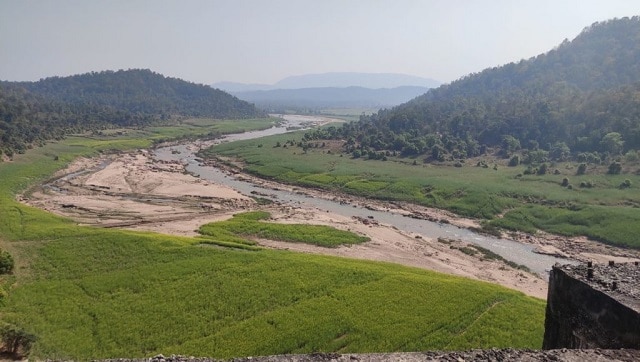Haryana cops: 40,000 ‘committed supporters’ at Delhi farm stir sites
For all the talk of the farmers’ agitation against the agri laws at Delhi’s border points fizzling out, the numbers reveled by the Haryana Police paint a different picture. Top officers of state police estimate presence of around 40,000 “committed supporters” from Punjab and Haryana at Singhu and Tikri borders even after passing of nearly four months since the agitation shifted to the National Capital in late November last year.
At ground level in Haryana, the farmers are busy in executing micro management to sustain the agitation for months even as 25 companies of paramilitary forces are still camping in state to help the local police handle the ongoing stir.
Currently, the police officials estimate, there are 18,000-19,000 protesters sitting at Singhu border while another 20,000-22,000 are at Tikri. Farmer leaders, however, claim that the numbers are much higher than the estimates of police.
Speaking to The Indian Express, a senior Haryana Police officer claimed a significant decrease in the number of farmers at Delhi borders in Haryana jurisdiction in comparison to their presence on January 26 but adds that “still there is a big number of protesters at the borders”. “We can’t underestimate their current presence at the borders,” added the officer requesting anonymity.
Farmer leaders say that a large number of farmers were supposed to return to their homes after attending the “tractor parade” on the Republic Day.
The police officer said, “Earlier, the people used to go to the border points like they go to attend a fair. Now, there is a less floating crowd at the protest sites, but committed supporters of the agitation are still there.”
The officer said that the move by Uttar Pradesh Police aiming to remove protesters from Ghazipur border in the evening of January 27 had proved counter-productive in Haryana. “It had a very sharp reaction in Haryana. A lot of farmers were upset and a number of kisan mahapanchayats were organized after that episode. The agitation became stronger after the incident at Ghazipur where BKU leader Rakesh Tikait was seen with tears in eyes. For the next 10-15 days, Haryana was very hot. However, now the pace of agitation has slowed down,” claimed the officer.
Haryana police officials claimed that they had handled the situation immediately after the violence in Delhi during a “tractor parade” on January 26 “very tactfully”. Instead of using force, the Haryana police was seen pursuing the farmer leaders to remove their dharnas from toll the plazas on January 27.
“When the agitation was at its peak around January 26, we were having 45 companies of paramilitary forces. Basically, these were given to Haryana by the Centre to handle the situation in wake of the farmers’ agitation. They came in phases between last week of November last year and last week of January this year. Twenty companies have been withdrawn after elections were announced in five states. Now, we have 25 companies of paramilitary forces, primarily CRPF and RAF apart from BSF and ITBP.”
A maximum of the paramilitary forces has been deployed in Jhajjar and Sonipat districts where the protesters are camping at Singhu and Tikri borders in Haryana jurisdiction.
The security personnel of ITBP and Haryana Police had to be deployed to ensure smooth functioning of a training camp of BJP at Narwana town of Jind district on March 14, with angry farmers staging a protest outside the venue.
On the other hand, the agitating farmers have changed their strategy to sustain the agitation for long. Dharnas of farmers at toll plazas to ensure free passage of vehicles is still continuing. But now, the agitators go to the dharna sites in rotation with farmers from 15 neighbouring villages making it a point to remain present at the venue daily.
In another plan, now they have focused on forming committees in villages to emerge as a strong pressure group for future. The efforts are also on to seek active support from other sections of the society like labourers and employees.
Farmers, labourers and arhtiyas (commission agents) on Friday joined hands to hold dharnas in anaj mandis of Jind district. “This has now become a mass movement. Not only farmers, now labourers and employees too are participating in the agitation actively,” said Azad Singh Palwa, Jind district president of BKU. On Thursday, a mahila kisan panchayat was held in Kandela village of Jind district. Observers believe the farmers will intensify the agitation further in May after completing the harvesting season of crops.

